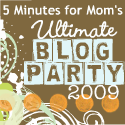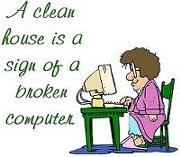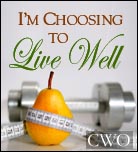 2009 Theme: Salt and High Blood Pressure. Two Silent Killers - Get Informed. Live Long
2009 Theme: Salt and High Blood Pressure. Two Silent Killers - Get Informed. Live LongWorld Hypertension Day
World Hypertension Day has been established to highlight the preventable stroke, heart and kidney diseases caused by high blood pressure and to communicate to the public information on prevention, detection and treatment.
Each year, May 17th is designated World Hypertension Day. High Blood Pressure Is A Global Epidemic. Over 1.5 billion people worldwide suffer from high blood pressure (or hypertension). Hypertension is the biggest risk factor for heart disease, stroke and kidney disease.
High blood pressure is the biggest single risk factor for death worldwide, causing strokes, heart attacks and kidney disease.
Salt Is A Major Factor In Raising Blood Pressure. High salt (sodium) consumption is the cause of hypertension in about 3 in 10 adults. Hypertension is the major risk factor in cardiovascular diseases, accounting for 64% of strokes and 49% of coronary heart disease. Reducing sodium
reduces blood pressure. Globally, 7 million die every year because of high blood pressure. Many of these deaths could be prevented by eating less sodium. Sodium is a part of table salt but up to
80% of the sodium we consume comes from processed or packaged food and food eaten at restaurants.
For More Information
http://www.worldhypertensionleague.org/
STOP – Cut Down On
Foods High In Sodium
Anchovies, bacon, cheese, chips
(if sodium added), coated chicken,
powdered sauces, noodle snacks, olives,
pickles, prawns, salami, salted nuts,
salted fish, sausages, smoked meat
and fish, soy sauce, stock cubes, table
sauces, canned meats.
Sodium More Than 400 Mg per Serving
YIELD – Eat Fewer Servings
of Processed Foods.
Baked beans, cookies, breakfast cereals,
bread products, burgers, cakes, pastries,
cooking/table sauces, chips, stuffed/
canned pasta, meat pies, pasta sauces,
pizza, ready meals, soup, sandwiches
Sodium 200 - 400 Mg per Serving
GO – Eat More Foods
Lower In Sodium
Some breakfast cereals, couscous,
eggs, fresh fish, meat and poultry, fresh
cheese, fruits and vegetables (dried,
fresh, frozen) homemade bread/sauces/
soup, mozzarella and ricotta cheese,
pasta, rice, unsalted nuts, plain cottage
cheese, plain popcorn, yogurt, peas,
beans, lentils, seeds.
Sodium Less Than 200 Mg per Serving
Other Helpful Actions:
• Don’t put the salt shaker on the table.
• Try using fresh herbs and dried spices instead of salt.
• Try making your own sauces with less or no salt.
What actions can countries take to reduce salt intake?
It Is Vital That All Countries Reduce
Their Salt Intake.
• The average daily salt intake in worlwide is
approximately 9-12 grams per person.
• The World Health organization
recommends not more than
1 tea spoon of salt (5-6 grams
per day. New evidence
recommends daily intake of
only half a tea spoon of salt
(2-3 grams) per day and even
less for children.
• National salt reduction is the least costly way to
prevent cardiovascular disease.
If salt intake is reduced by half,
it would save approximately
2.5 million deaths a year from strokes
and heart attacks worldwide.
Salt Reduction Strategies Around the World
Developed Countries:
Most salt in the diet comes from processed, packaged,
restaurant, or fast foods.
• Engage with the food industry to reduce salt in
the manufacturing process
• Encourage governments to set voluntary salt
reduction targets
• Develop food labeling with salt
• Education Educate the public
about the danger of salt
Other Countries:
Most of the salt is added during
cooking or comes from sauces.
• Assess major sources of
salt in the diet
• Educate health authorities
and Government
• Educate the public about
the dangers of salt
What action can the average person take to reduce salt intake?
Cut The Salt And Lower Your Risk!
People who eat too much salt are more
likely to have high blood pressure,
resulting in heart attacks, stroke and
kidney diseases. But, the salt shaker is
not the biggest culprit! About 80% of
the sodium you eat is from processed,
packaged, restaurant and fast foods.
Check Food Labels
Before You Buy
To reduce your sodium intake, check
food labels for sodium content.
Choose foods that are low in sodium,
sodium-reduced. Try to avoid food with
20% or more of sodium per serving.
1 gram of salt contains
400 milligrams (mg) of sodium or
1 gram of sodium = 2.5 grams of Salt.
The current average daily sodium intake
is well over the recommended level
of 1 teaspoon or of 2,300 mg.
Try to use only half a tea spoon
of salt a day.
Control Your Blood Pressure:
• Measure your blood pressure regularly
at home.
• If your blood pressure is high see a health
care provider to get an assessment.
• If you are on treatment make sure to take
your medications regularly.
Unfortunately, now my husband is off work again but this time due to a back injury. He's seeing a physiotherapist regularly and returns back to work on light duties in a week. Poor guy is calling himself "Brad Pittiful". Yes there is a story behind that....both my husband and I work as RN's at the same place so one day when I picked up a shift on is unit that he is off sick for, one of the HCA's said "oh look, it's Mrs. Smith....in place of Mr. Smith who isn't here." My first thought was, "does that make me Angelina Jolie?!". I went home and called my husband "Brad Pitt"....thus his response :)


















No comments:
Post a Comment